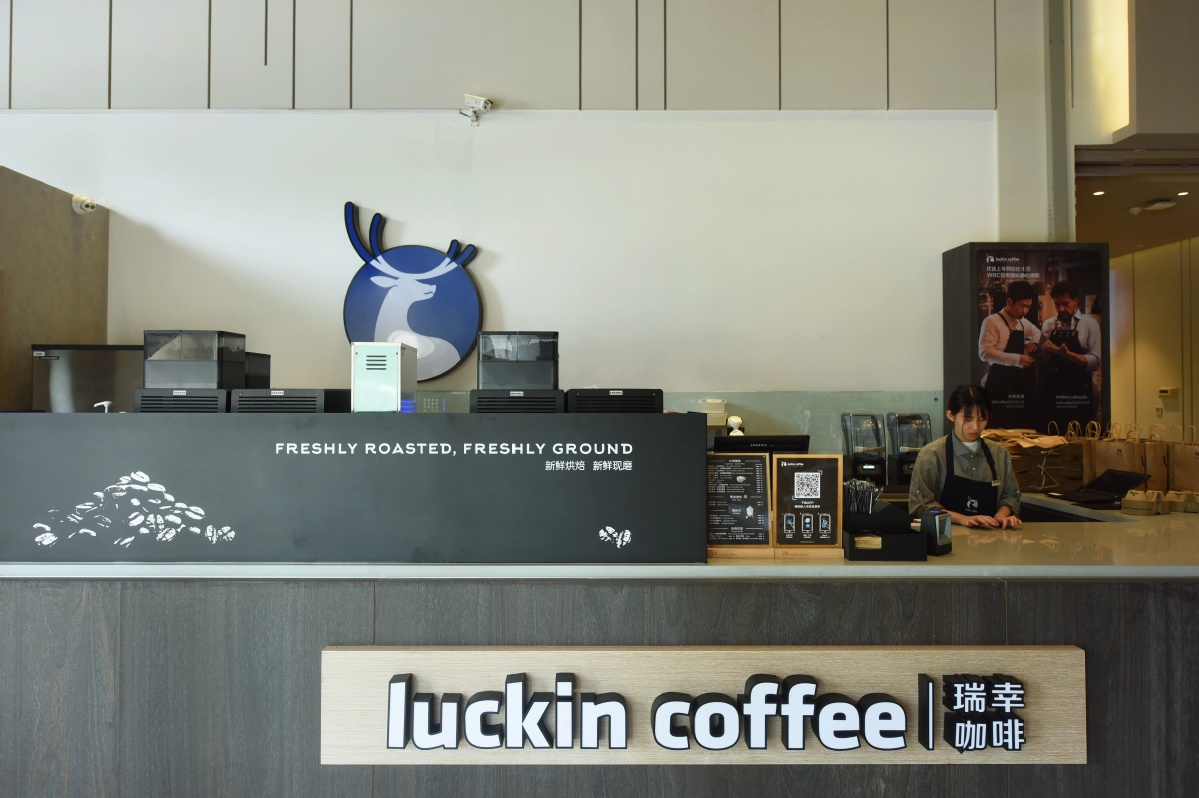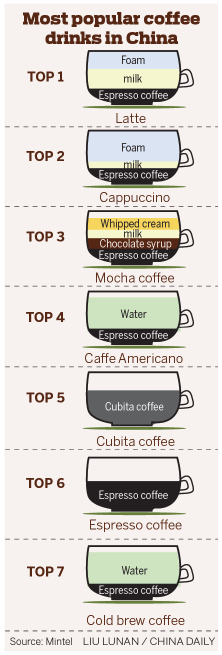Luckin enters vending machine sector


Luckin Coffee Inc, which surpassed Starbucks as the country's largest coffee chain operator in term of store numbers by the end of last year, said on Wednesday that it was entering the coffee and snack vending machine market to further expand its network, but this does not necessarily generate a quick boost to profits.
The Xiamen-based coffee chain operator will offer two kinds of machines including "Luckin Coffee Express", a coffee vending machine, and "Luckin Pop", a vending machine for snacks and beverages, to reach more consumers, particularly in office buildings.
Luckin Coffee said that it had 4,507 self-operated stores by the end of 2019 in China, making it the largest coffee chain in terms of stores. The company added 10 million new customers in the fourth quarter of last year and had 40 million customers as of Dec 31, 2019. Luckin attributed the growth in customers to hand-brewed tea drinks, snacks and new retail outlets.
Starbucks has more than 4,100 stores in China, with larger single store areas than Luckin's.
Luckin said that its snack and beverage vending machine-Luckin Pop-offers lower prices than its competitors by working closely with global suppliers and receiving discounts through large volume procurement. The two types of vending machines are expected to cover various locations including office buildings, campuses, airports, bus terminals, gas stations, highway service stations and communities, complementing current Luckin's retail store network.
Zhu Danpeng, a food and beverage analyst, said by creating a new consumption scenario, Luckin can further expand its retail presence and make its products available in expanding areas. But investment in vending machines is also slowing down the pace of generating profits quickly, he said.
Qian Zhiya, chief executive officer of Luckin Coffee, said the company's new vending machine network, stores and e-commerce channels, have empowered it to build a closed-loop smart retail platform. She said the company's efficiency is on the rise, with the number of monthly transaction customers far higher than the number of stores, meaning more loyalty and consumption frequency.
She said the new vending machines, which took about a year in research and development, have strengths in light investment and zero store decoration fees and less restrictions in terms of locations.
The company will continue to grow both its traffic and products. Its vending machines are expected to reach more customers in campuses, airports, gas stations and other leisure locations, Qian said.
According to consultancy firm Mintel, China's brewing coffee market has witnessed rapid growth, and reached 64.7 billion yuan in 2018, up 7.5 percent from the level in 2017. The growth rate is expected to continue till 2023, with annual growth rates of 6 percent.
Wang Hao, an analyst who tracks the food and beverage sector at Mintel, said the new e-commerce driven coffee shops have promoted market growth. However, the growth is expected to be slower thanks to the local consumers' increasing preferences for hand-brewed tea drinks and tea-based beverages.
Jason Yu, general manager of Kantar Worldpanel China, said there is major potential for the development of coffee vending machines in China, particularly those that can produce quality coffee.
Nestle last year teamed up with coffee giant Starbucks to launch a new series of coffee products featuring coffee capsules that allow consumers to make coffee at home or in the office by themselves.




































